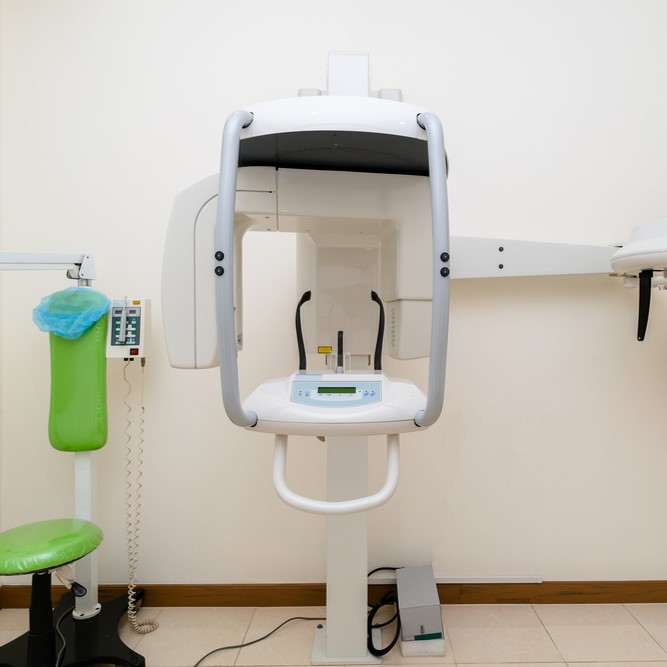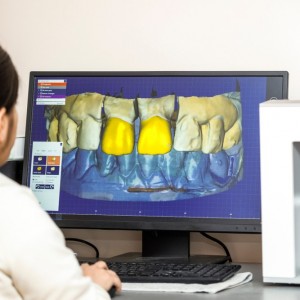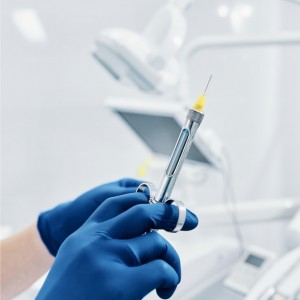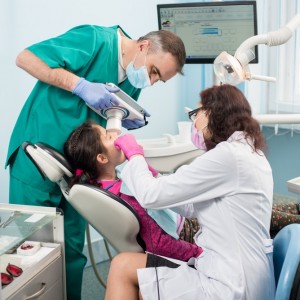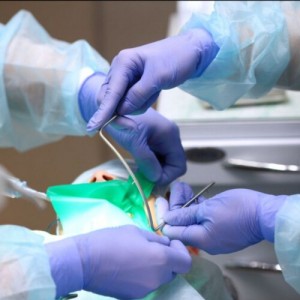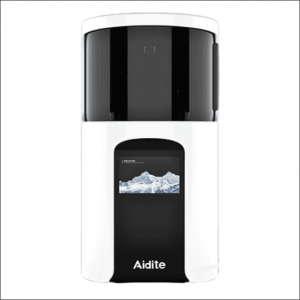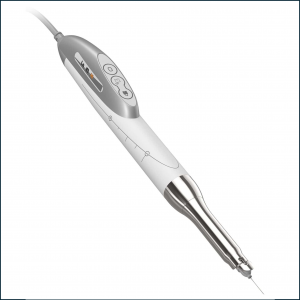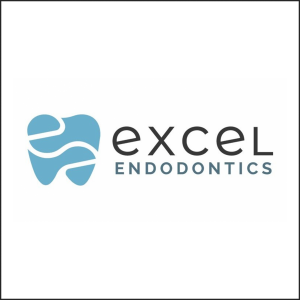
A novel workflow for computer guided implant surgery matching digital dental casts and CBCT scan
Nowadays computer-guided “flap-less” surgery for implant placement using stereolithographic tem-plates is gaining popularity among clinicians and patients. The advantages of this surgical protocol are its minimally invasive nature, accuracy of implant placement, predictability, less post-surgical discomfort and reduced time required for definitive rehabilitation. Aim of this work is to describe a new protocol (Smart Fusion by Nobel Biocare), thanks to which is now possible to do a mini-invasive static guided implant surgery, in partially edentulous patients with at least 6 remaining teeth, without the use of a radiographic guide. This is possible thanks to a procedure named surface mapping based on the matching between numerous points on the surface of patient’s dental casts and the corresponding anatomical surface points in the CBCT data. The full protocol is examined focusing the attention on the clinical and laboratory procedures.
Conclusions
Also with some critical points and needing an adequate learning curve, this protocol allows to select the ideal implant position in depth, inclination and mesio-distal distance between natural teeth and or other implants enabling a very safe and predictable rehabilitation compared with conventional surgery.
It represents a good tool for the best compromise between anatomy, function and aesthetic, able to guarantee better results in all clinical situations.
Authors: G DE VICO, F FERRARIS, L ARCURI, F GUZZO, D SPINELLI
Source: https://pmc.ncbi.nlm.nih.gov/
 Related articles
Related articles
Editorials 07 August 2025
Researchers are developing ‘smart’ implants that would provide a more natural feel while chewing or talking
Implantology 25 July 2025
Background: Cytokine–microbiology–virology monitoring after implant placement may help to develop profiles of variables that can help to explain interaction between the immune system and alveolar...
Prosthodontics 30 June 2025
Prosthodontic rehabilitation in the maxillary area using zirconia dental implants: a case report.
Purpose: Zirconia (ZrO2) is a ceramic material with adequate mechanical properties for manufacturing of medical devices. Zirconia stabilized with Y2O3 has the best properties for these applications.
Restorative dentistry 30 May 2025
This clinical study was undertaken to evaluate the use of tissue-engineered bone, mesenchymal stem cells, platelet-rich plasma, and beta-tricalcium phosphate
 Read more
Read more
Oral Hygiene & Prevention 03 October 2025
Dental treatment planning and management for the mouth cancer patient
The need to deliver cancer treatment promptly often requires modification of ideal dental treatment plans.
Editorials 03 October 2025
To help stock the Filling Station, a food pantry open to anyone in our ASOD family who is experiencing food insecurity or needs help making ends meet, Adams School of Dentistry is holding a food...
Products 03 October 2025
From Scan to Smile: Aidite’s EZPRINT-P1 and Rapid 3 Deliver a Complete Digital Workflow
Digital dentistry thrives on precision, efficiency, and integration. Aidite has long been a leader in advancing these principles. With the introduction of the EZPRINT-P1 3D Printer, the company now...
Products 03 October 2025
Dentalhitec Americas recently announced the official U.S. launch of QuickSleeper5, following FDA clearance. Even prior to its American debut, demand from dentists for the QuickSleeper5.
News 03 October 2025
Excel Endodontics, a new specialty dental practice founded by endodontist Dr. Rachel Halpern, is proud to announce its official opening in Marlboro, New Jersey, along with the launch of its new...


